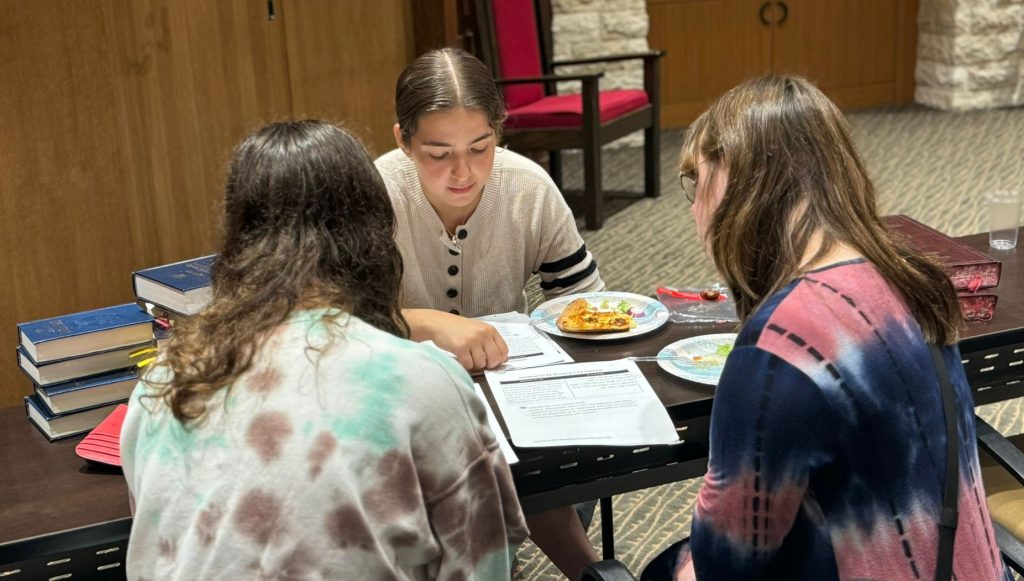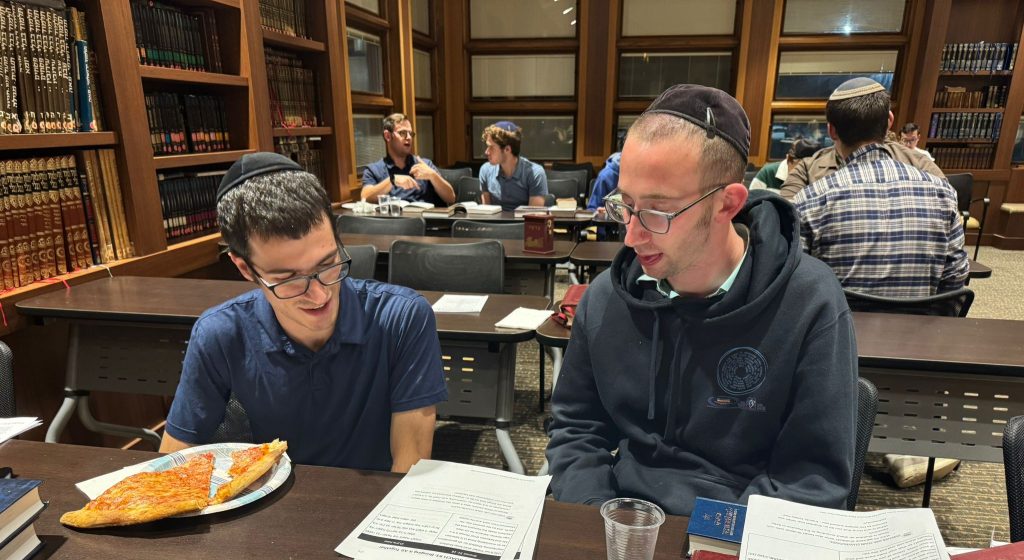The Rutgers JLIC community experienced a heartwarming blend of inclusivity and Torah study as they welcomed Yachad participants to their Open Beit Midrash (OBM) program. Under the leadership of co-directors Rav Avi and Sara Schwartz, JLIC Rutgers has been hosting OBM for the past four years, providing students with a weekly opportunity to engage in self-directed learning while enjoying pizza on Sunday nights.
This year, Gaby Gotesman, the Orthodox community co-chair, took the initiative to expand the reach of OBM by inviting Yachad participants to join throughout the year. The first such gathering took place recently, marking a significant milestone in fostering community connections and inclusive learning.
“I’ve wanted to bring Yachad programming to campus for a while and am so excited that it finally happened. It was awesome to see Rutgers students get involved with Yachad and for Yachad members to get to spend time with their college aged peers,” said Gotesman.

Gotesman, a sophomore mechanical engineering major from Bergenfield, NJ, demonstrated remarkable leadership by organizing the event. She created a Google document for JLIC students to sign up and learn with Yachad participants. The response was overwhelming, with slots quickly filling up as students eagerly volunteered to participate in this inclusive learning experience.
The inaugural session brought together 20 JLIC students and 8 Yachad participants, creating a diverse and vibrant learning environment. The topic of study, “Shabbos Every Single Day: Is Shabbat really just a ‘Day of Rest’?” provided a thought-provoking foundation for discussions.

Participants were provided with a source packet and guiding questions to facilitate their individual conversations. The material included three of the twenty-four instances where the mitzvah of Shabbat appears in the Torah, each presenting a different approach to understanding Shabbat’s significance.
The learning session encouraged participants to explore various aspects of Shabbat observance, including its communal nature and its role in strengthening relationships with both people and God. Students and Yachad participants alike delved into questions about the essence of Shabbat, discussing how it connects individuals to their communities and enhances their spiritual lives.

To bring the diverse perspectives together, the group studied a piece by Rabbi Lord Jonathan Sacks from “A Letter in the Scroll.” This text emphasized how Shabbat sustains Judaism’s great institutions, from synagogue attendance to family time, weaving together the communal and personal aspects of Jewish life.
The success of this initiative highlighted the JLIC community’s commitment to inclusivity and Torah learning. By bringing Yachad participants into the fold of OBM, Rutgers JLIC created a space where diverse individuals could come together, learn from one another, and strengthen their connections to Judaism and community.
Gotesman’s leadership in organizing this event demonstrated the power of student initiative in creating meaningful experiences. Her efforts not only enhanced the OBM program but also set a precedent for future inclusive gatherings, promising a year filled with enriching interactions between JLIC students and Yachad participants.
As the Rutgers JLIC community continues to grow and evolve, events like these serve as shining examples of how Torah learning can bridge gaps, foster understanding, and create lasting connections among all members of the Jewish community.
Reach out to any of our Directors to learn more about JLIC and to support our programming.
Related Posts
From Rutgers to Israel: Matthew Levine’s Life-Changing Summer Mission with JLIC
Dodging Challenges, Hitting Goals: Inside JLIC at Rutgers Epic Dodgeball Fundraiser